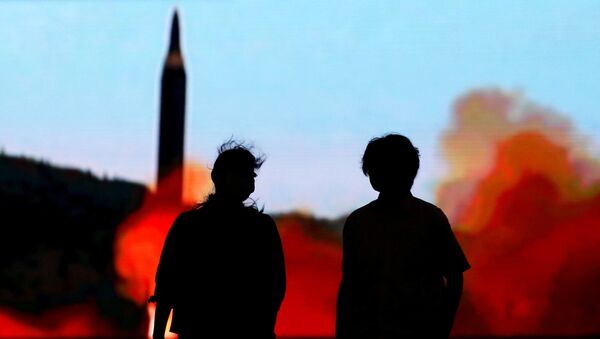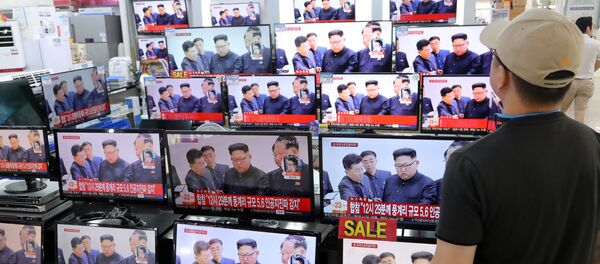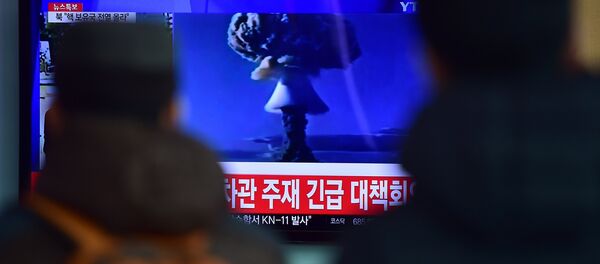"The possibility of a radiation leak there is growing" with each new nuclear test, Paik Hak-soon, senior researcher at the Sejong Institute, told the Korea Times Monday. More potent underground explosions are increasing the risk of collapse, Paik said.
Another nuclear researcher, Chinese scientist Wei Shijie, told The Telegraph UK "the problem is quite serious and a nuclear leak is inevitable … It’s just a matter of time to detect it, because there are cracks on mountains where radioactive substances will leak."
Pyongyang’s September 3 hydrogen bomb test was novel not necessarily because of the type of nuclear weapon that had been trialed, but rather because of how big the explosion was, Hans Kristensen, director of the Nuclear Information Project at the Federation for American Scientists told Radio Sputnik’s Loud & Clear last Tuesday.
"The ranges I hear are from 100 to 250 kiloton, depending on who you ask,” Kristensen said. “That’s a significant increase from the 10 to 20 kiloton [explosion] they had in previous tests," he noted.
The powerful blast "hasn’t affected our environment and public yet," China’s Ministry of Environmental Protection said on September 3 following an analysis of the Chinese provinces nearest to Punggye-ri, the Diplomat reports.
Nevertheless, Chinese scientists told the South China Morning Post the continued tests posed a "huge threat" to the region, "especially China."
"We call it taking the roof off," Wang Naiyan, a researcher for Beijing’s nuclear weapons program, told SCMP. "If the mountain collapses and the hole is exposed, it will let out many bad things," Wang said September 6.
“The North Korean government should stop the tests as they pose a huge threat not only to North Korea but to other countries, especially China,” the researcher said.
Former RAND Corporation defense analyst Bruce Bennet told US media outlets the next nuclear test at Punggye-ri could be an “absolutely huge eruption” that would kill “thousands – if not tens of thousands – of Chinese and North Koreans."
But not everyone is sold on the likelihood that another nuclear test will lead to chaos.
38 North, a website specializing in topics on North Korea that is closely affiliated with Johns Hopkins University, reports “there is simply no valid basis to expect that any underground nuclear test that could be conducted by North Korea and contained within the geologic setting of the Punggye-ri Nuclear Test Site could trigger a subsequent eruption of the Mount Baekdu volcano.”




